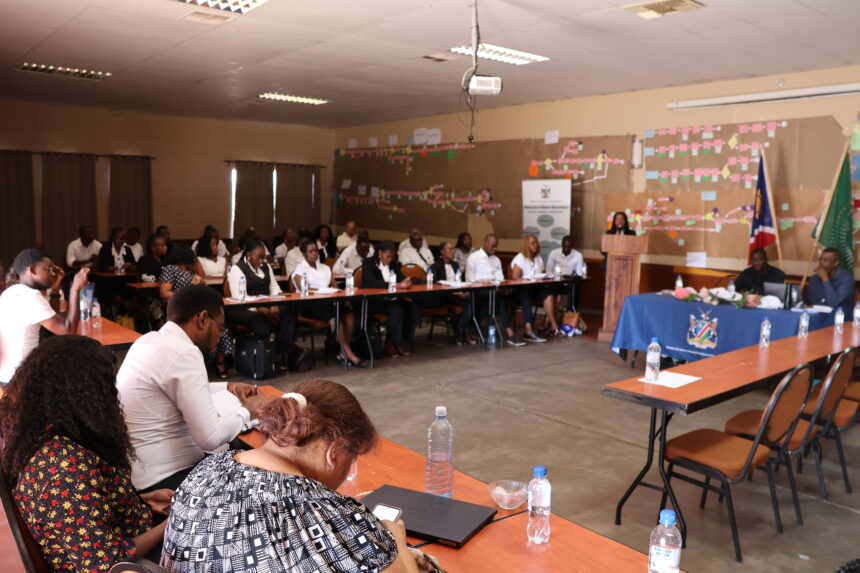Mulisa Simiyasa
OTJIWARONGO – Officials of the Labour Commissioner gathered on Monday for a weeklong workshop at Otjiwarongo, to discuss and formulate best practices in effectively resolving labour dispute cases.
The workshop of a group largely composed of arbitrators from different regional offices across the country, was organised by the government through the Office of the Labour Commissioner, Kyllikki Sihlahla, who is also a facilitator at the workshop.
Sihlahla in her official remarks said a strong focus of the workshop is the creation and implementation of the new Business Process Reengineering (BPR) method in relation to labour dispute matters.
She said efficiency, justice, professionalism, impartiality and respect towards both parties involved in a labour dispute would form part of the new methods of arbitration and reconciliation.
The main idea of transforming the current methods of labour dispute resolution and reconciliation is merely to deliver excellent and timely labour-related services to all parties involved, as justice delayed has serious financial and human resource repercussions, she said.
She also informed the 40 regional arbitrators and reconciliation officials present at the meeting that there are serious reports of punctuality among her regional officials, which were reported to her office and that this bad behaviour of late coming to work should come to an end after the training workshop.
“We would also want to see our arbitrators in this country transformed and also start to approach labour dispute cases with empathy and professionalism as we try together to restore the seemingly broken trust between employers, employees and the Office of the Labour Commissioner,” she said.
Deputy Labour Commissioner, Advocate Otniel Podewiltz will also facilitate the training.
Governor James Uerikua who officially opened the workshop emphasised the importance of increasing efficiency in labour dispute resolution and how arbitrators would conduct their business.
He further called for increasing the number of arbitrators in the regional offices, as well as improving their working conditions and resourcing their offices with the necessary vehicles for their mobilities to and from the labour courts.
Uerikua cautioned the labour dispute arbitrators to refrain from piling labour cases unnecessarily.
The workshop is set to end Friday.
-Nampa



